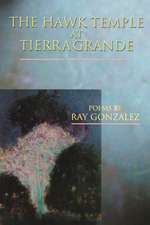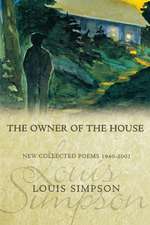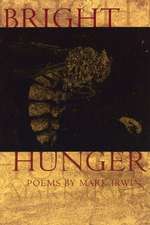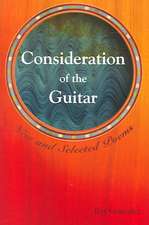Theophobia: American Poets Continuum, cartea 136
Autor Bruce Beasleyen Limba Engleză Paperback – 17 sep 2012
Theophobia is the latest volume in Bruce Beasley's ongoing spiritual meditation which forms a kind of postmodern devotional poetry in a reinvention of the tradition of John Donne, George Herbert, Emily Dickinson, Gerard Manley Hopkins, and T. S. Eliot. Theophobia is structured around a series of poems called "Pilgrim's Deviations" and forms a deviant and deviating pilgrimage through science, history, politics, and popular culture. Beasley seeks the Biblical Kingdom of God among Dolly the cloned sheep, the wonders and horrors of extremophilic creatures living in astonishing intensities of temperature, robotic phone operators, and Wikipedia's explanation of the mysteries of the Holy Spirit.
Bruce Beasley is the author of six poetry collections, most recently The Corpse Flower: New and Selected Poems (University of Washington Press, 2007). He has won fellowships from the NEA and the Artist Trust of Washington and three Pushcart Prizes.
Finalist for The Washington State Book Award
One of Poetry Northwest's Notable Books of 2014
Bruce Beasley is the author of six poetry collections, most recently The Corpse Flower: New and Selected Poems (University of Washington Press, 2007). He has won fellowships from the NEA and the Artist Trust of Washington and three Pushcart Prizes.
Finalist for The Washington State Book Award
One of Poetry Northwest's Notable Books of 2014
Din seria American Poets Continuum
-
 Preț: 83.12 lei
Preț: 83.12 lei -
 Preț: 83.12 lei
Preț: 83.12 lei -
 Preț: 81.26 lei
Preț: 81.26 lei -
 Preț: 83.94 lei
Preț: 83.94 lei -
 Preț: 87.86 lei
Preț: 87.86 lei -
 Preț: 87.63 lei
Preț: 87.63 lei -
 Preț: 115.50 lei
Preț: 115.50 lei -
 Preț: 86.82 lei
Preț: 86.82 lei -
 Preț: 84.56 lei
Preț: 84.56 lei -
 Preț: 134.04 lei
Preț: 134.04 lei -
 Preț: 76.46 lei
Preț: 76.46 lei -
 Preț: 87.45 lei
Preț: 87.45 lei -
 Preț: 83.12 lei
Preț: 83.12 lei -
 Preț: 82.08 lei
Preț: 82.08 lei -
 Preț: 85.77 lei
Preț: 85.77 lei -
 Preț: 83.12 lei
Preț: 83.12 lei -
 Preț: 86.64 lei
Preț: 86.64 lei -
 Preț: 83.12 lei
Preț: 83.12 lei -
 Preț: 87.63 lei
Preț: 87.63 lei -
 Preț: 85.77 lei
Preț: 85.77 lei -
 Preț: 96.50 lei
Preț: 96.50 lei -
 Preț: 88.68 lei
Preț: 88.68 lei -
 Preț: 87.23 lei
Preț: 87.23 lei -
 Preț: 90.95 lei
Preț: 90.95 lei -
 Preț: 83.53 lei
Preț: 83.53 lei -
 Preț: 81.67 lei
Preț: 81.67 lei -
 Preț: 65.71 lei
Preț: 65.71 lei -
 Preț: 82.08 lei
Preț: 82.08 lei -
 Preț: 137.99 lei
Preț: 137.99 lei -
 Preț: 86.98 lei
Preț: 86.98 lei -
 Preț: 88.04 lei
Preț: 88.04 lei -
 Preț: 87.17 lei
Preț: 87.17 lei -
 Preț: 86.64 lei
Preț: 86.64 lei -
 Preț: 98.99 lei
Preț: 98.99 lei -
 Preț: 81.15 lei
Preț: 81.15 lei -
 Preț: 85.77 lei
Preț: 85.77 lei -
 Preț: 86.82 lei
Preț: 86.82 lei -
 Preț: 85.17 lei
Preț: 85.17 lei -
 Preț: 82.08 lei
Preț: 82.08 lei -
 Preț: 91.34 lei
Preț: 91.34 lei -
 Preț: 81.03 lei
Preț: 81.03 lei -
 Preț: 82.08 lei
Preț: 82.08 lei -
 Preț: 88.86 lei
Preț: 88.86 lei -
 Preț: 84.98 lei
Preț: 84.98 lei -
 Preț: 189.78 lei
Preț: 189.78 lei -
 Preț: 84.12 lei
Preț: 84.12 lei -
 Preț: 84.12 lei
Preț: 84.12 lei -
 Preț: 88.86 lei
Preț: 88.86 lei -
 Preț: 86.21 lei
Preț: 86.21 lei
Preț: 83.12 lei
Nou
Puncte Express: 125
Preț estimativ în valută:
15.91€ • 16.55$ • 13.13£
15.91€ • 16.55$ • 13.13£
Carte disponibilă
Livrare economică 25 martie-08 aprilie
Preluare comenzi: 021 569.72.76
Specificații
ISBN-13: 9781934414910
ISBN-10: 1934414913
Pagini: 103
Dimensiuni: 150 x 226 x 10 mm
Greutate: 0.16 kg
Editura: BOA Editions
Seria American Poets Continuum
ISBN-10: 1934414913
Pagini: 103
Dimensiuni: 150 x 226 x 10 mm
Greutate: 0.16 kg
Editura: BOA Editions
Seria American Poets Continuum
Recenzii
“Beasley outdoes his five prior collections with this spiky, thoughtful, elaborate, sometimes scary, sometimes funny set of verse essays, riffs, and meditations on the idea of a Christian creator-god, and on ideas from evolutionary and molecular biology about how life comes to be… Yet it's never just play: he wants answers, from divinity or from DNA, even if he believes that he will not get them, and so his variable, friable, unbalanced verse lines can morph into prayer… Careful, sympathetic attention will produce pleasure in Beasley's collisions between curiosity and doubt, as the newest oddities of the life sciences, and the oddest words he can find, crash into dark fears and grapple with ancient questions.”
–PUBLISHERS WEEKLY *Starred Review*
"An investigation into the physical world and what lies beyond, this book will appeal to enthusiasts of poetry and the subjects that Beasley mines." —Library Journal
"This is a book that wrestles with religious forms as well as religious notions, considering religious practice and experience in relation to current-day concerns. This includes not only the putting of lines on paper, but also waiting for customer service or meditating on the grand design of the Toxoplasma gondii lifecycle… what sets Theophobia apart—as a thick, varied, and always thoughtful exercise—is considering such a phenomena as a religious task, revealing of something essential to our understanding of God, as Augustine argued in relation to vipers and worms… Beasley casts a broad net, dredging deep in this important contemporary addition to poetic wrestling with the religious.”—Spencer Dew, Rain Taxi
"Beasley is, above all, a poet of spiritual ardor, a dyspeptic believer in the Geoffrey Hill mode ... Writing of Donne in a recent essay, Hill insists that for a certain breed of poet, style is faith, and Beasley may well be such a writer. His many allusions to the mystical esoteric – Meister Eckart, Julian of Norwich, the Gnostic gospels, and the Corpus Hermeticim (not to mention plain old Bible verse) – are evidence not merely of Beasley’s learnedness, but also of his belief in the poem as a kind of heterodox spiritual exercise. He is a postmodern descendant of Herbert, Traherne, and Vaughn … there are few contemporary poets who can keep such august company … Like Robert Duncan, who was also powerfully drawn to Gnostic and Hermetic thought, Beasley’s reading in mysticism has, above all, animated his lyrical acuity. He draws from these traditions not merely for their substance, but also to enhance his musical chops. And when he displays those chops, the results can be majestic … a fluency and rhetorical control that no other poet of his generation can match."
–DAVID WOJAHN, The Kenyon Review
In Theophobia, one of Image's Top Ten of 2012, "the poet’s belief and doubt are deconstructed and then uncertainly rebuilt. In his restless search for (and fear of) God, he combines the ambiguity of postmodernism, the precision of science, and the theology of mysticism into sprawling poems that add surprising twists to our images of divinity...For Beasley, language itself becomes a metaphor for the Incarnation; the joining of divinity with humanity is as messy, oblique, and mysterious as the relationship between a word and its meaning… You might be reaching for the dictionary more than once with this book, but trust us: this doesn’t lessen its delight in the least.” --Image
“The poems succeed because this juxtaposition does indeed startle us toward fresh insights. Readers are presented with a mind thinking, a particularly energetic mind, one that enjoys the task. And despite my own initial hesitations, I found the poems ultimately hospitable … I’m envious of Beasley’s agility in this book. The poems consolidate the mind with the spirit, the ordinary with the extreme, possibility with impossibility.” -Lynn Domina, poet
“The poems in Theophobia register the secular doubts of our time. They reverberate with the language we hear even as they dismember it. If they refuse to ‘ring’ in ways whose loss we sometimes lament, they may be introducing the ear to other, newer rhythms. Bruce Beasley is one of a kind, and the inquisitive inventiveness of Theophobia assures that poetry will continue to learn by going where it has to go.” -The Georgia Review
“These poems are difficult, their gnarled syntaxes and encyclopedic vocabularies demand from us that we be at our best as readers, that we muster something of ourselves to overcome the terror of our current predicament. And that rewarding difficulty is precisely what makes this book necessary—it demands that we participate in its project of imagining how to be resilient, how to be larger.” -Poetry Northwest
"Here are poems that carry me along when I can’t keep up, and which pull me close in moments of frightening intimacy. Here are uncomfortable poems that feel as familiar as my own doubting mind. Here is beauty marred with hectic pace that reminds me of the churnings of my own soul. Here is a poetry deeply rewarding to those of us who, like Beasley, wrestle with the metaphysical implications of our world and our lives in it." -Luke Hankins, 32 Poems
–PUBLISHERS WEEKLY *Starred Review*
"An investigation into the physical world and what lies beyond, this book will appeal to enthusiasts of poetry and the subjects that Beasley mines." —Library Journal
"This is a book that wrestles with religious forms as well as religious notions, considering religious practice and experience in relation to current-day concerns. This includes not only the putting of lines on paper, but also waiting for customer service or meditating on the grand design of the Toxoplasma gondii lifecycle… what sets Theophobia apart—as a thick, varied, and always thoughtful exercise—is considering such a phenomena as a religious task, revealing of something essential to our understanding of God, as Augustine argued in relation to vipers and worms… Beasley casts a broad net, dredging deep in this important contemporary addition to poetic wrestling with the religious.”—Spencer Dew, Rain Taxi
"Beasley is, above all, a poet of spiritual ardor, a dyspeptic believer in the Geoffrey Hill mode ... Writing of Donne in a recent essay, Hill insists that for a certain breed of poet, style is faith, and Beasley may well be such a writer. His many allusions to the mystical esoteric – Meister Eckart, Julian of Norwich, the Gnostic gospels, and the Corpus Hermeticim (not to mention plain old Bible verse) – are evidence not merely of Beasley’s learnedness, but also of his belief in the poem as a kind of heterodox spiritual exercise. He is a postmodern descendant of Herbert, Traherne, and Vaughn … there are few contemporary poets who can keep such august company … Like Robert Duncan, who was also powerfully drawn to Gnostic and Hermetic thought, Beasley’s reading in mysticism has, above all, animated his lyrical acuity. He draws from these traditions not merely for their substance, but also to enhance his musical chops. And when he displays those chops, the results can be majestic … a fluency and rhetorical control that no other poet of his generation can match."
–DAVID WOJAHN, The Kenyon Review
In Theophobia, one of Image's Top Ten of 2012, "the poet’s belief and doubt are deconstructed and then uncertainly rebuilt. In his restless search for (and fear of) God, he combines the ambiguity of postmodernism, the precision of science, and the theology of mysticism into sprawling poems that add surprising twists to our images of divinity...For Beasley, language itself becomes a metaphor for the Incarnation; the joining of divinity with humanity is as messy, oblique, and mysterious as the relationship between a word and its meaning… You might be reaching for the dictionary more than once with this book, but trust us: this doesn’t lessen its delight in the least.” --Image
“The poems succeed because this juxtaposition does indeed startle us toward fresh insights. Readers are presented with a mind thinking, a particularly energetic mind, one that enjoys the task. And despite my own initial hesitations, I found the poems ultimately hospitable … I’m envious of Beasley’s agility in this book. The poems consolidate the mind with the spirit, the ordinary with the extreme, possibility with impossibility.” -Lynn Domina, poet
“The poems in Theophobia register the secular doubts of our time. They reverberate with the language we hear even as they dismember it. If they refuse to ‘ring’ in ways whose loss we sometimes lament, they may be introducing the ear to other, newer rhythms. Bruce Beasley is one of a kind, and the inquisitive inventiveness of Theophobia assures that poetry will continue to learn by going where it has to go.” -The Georgia Review
“These poems are difficult, their gnarled syntaxes and encyclopedic vocabularies demand from us that we be at our best as readers, that we muster something of ourselves to overcome the terror of our current predicament. And that rewarding difficulty is precisely what makes this book necessary—it demands that we participate in its project of imagining how to be resilient, how to be larger.” -Poetry Northwest
"Here are poems that carry me along when I can’t keep up, and which pull me close in moments of frightening intimacy. Here are uncomfortable poems that feel as familiar as my own doubting mind. Here is beauty marred with hectic pace that reminds me of the churnings of my own soul. Here is a poetry deeply rewarding to those of us who, like Beasley, wrestle with the metaphysical implications of our world and our lives in it." -Luke Hankins, 32 Poems
Notă biografică
Bruce Beasley is the author of six collections of poems, most recently The Corpse Flower: New and Selected Poems (University of Washington Press, 2007). His previous collection, Lord Brain, an extended meditation on neuroscience, cosmology, theology, and language, won the University of Georgia Press’ Contemporary Poetry Series Award and was published in 2005. Beasley won the 1996 Colorado Prize for Poetry in 1996 for Summer Mystagogia, selected by Charles Wright, and the 1994 Ohio State University Press/Journal Award for The Creation. Wesleyan University Press published his books Spirituals (1988) and Signs and Abominations (2000). He has won fellowships from the National Endowment for the Arts and the Artist Trust of Washington and three Pushcart Prizes in poetry. His work also appears in The Pushcart Book of Poetry: The Best Poems from the First Thirty Years of the Pushcart Prize, as well as other anthologies including Lyric Postmodernisms: An Anthology of Contemporary Innovative Poetries; Under 35: The New Generation of American Poets; Under the Rock Umbrella: Contemporary Poets from 1951-1977; and American Alphabets: 25 Contemporary Poets. His poems appear widely in such journals as The Kenyon Review, Southern Review, New American Writing, Field, and Virginia Quarterly Review.
Descriere
Theophobia continues Beasley's postmodern spiritual meditations in the tradition of John Donne, George Herbert, Emily Dickinson, and T.S. Eliot.











